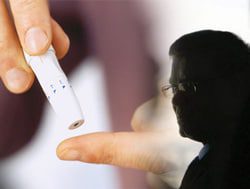
Potential hepatitis C victims are being offered free testing following a contamination debacle at Exeter Hospital. The New Hampshire Department of Health and Human Services will be involved in hepatitis C testing after patients voiced concern over Exeter Hospital and the hepatitis C outbreak linked to one of its labs, said Seacoast Online. A special […]
 Potential hepatitis C victims are being offered free testing following a contamination debacle at Exeter Hospital.
Potential hepatitis C victims are being offered free testing following a contamination debacle at Exeter Hospital.
The New Hampshire Department of Health and Human Services will be involved in hepatitis C testing after patients voiced concern over Exeter Hospital and the hepatitis C outbreak linked to one of its labs, said Seacoast Online. A special public meeting revealed that a number of people had to be re-tested after Exeter Hospital neglected to get 27 blood samples to the state lab within the 72 hours required for testing.
The common link is Exeter’s cardiac catheterization laboratory (CCL) and an adjacent recovery room. To date, 20 employees and patients at the lab tested positive for hepatitis C, said New Hampshire’s public health director. All 20 have been advised. The employee diagnosed with hepatitis C was placed on leave when Exeter’s investigation began last month, said Mark Whitney, vice president of community relations.
Blood borne diseases can be transmitted when an infected person is given a shot and either the needle or syringe is reused. Microscopic backflow can enter the syringe from the contaminated person and then also enters the medicine vial, which puts other patients receiving that medication at risk from the needle, the syringe, and the drug vial.
Exeter patients who underwent or who are pending hepatitis C testing said they are afraid of returning to the hospital. Since, state epidemiologist Sharon Alroy-Preis said, “We’re trying to organize something that’s in the general area but not part of Exeter Hospital.” Officials at Exeter Hospital issued a statement saying they have begun collecting new samples.
Exeter Hospital said the samples in question were drawn on scheduled the testing dates of June 7 and June 8, and picked up from Exeter on Saturday, June 9 by the state’s courier; however, the state says samples were not received until Monday, too late for processing, Seacoast Online wrote. “The hospital is committed to determining, together with the state, why these samples were not processed within the required 72-hour time frame, even though they were picked up from Exeter Hospital on Saturday by the state’s courier,” the hospital statement read. The hospital will no longer collect samples for this outbreak’s hepatitis C testing over the weekend, Seacoast Online reported.
Hepatitis C is a viral liver disease that can lead to chronic liver disease, such as cirrhosis, or cancer of the liver. The virus is spread by contact with infected body fluids; no vaccine exists for hepatitis C, which can be fatal. According to the U.S. Centers for Disease Control and Prevention (CDC), liver disease caused by hepatitis C results in 12,000 deaths in the country every year. Hepatitis C is the most common chronic blood borne viral infection in the U.S. said the CDC, with about 3.2 million Americans suffering from lifelong, chronic infection.
The state’s attorney general, Michael A. Delaney, has initiated an investigation into the matter saying that his office “has worked and continues to work with the Exeter Police Department and the New Hampshire State Police” to determine if criminal acts occurred in relation to the outbreak, wrote Foster previously. As we’ve mentioned, Dr. José Montero, director of New Hampshire Health and Services, told CNN that the culprit appears to have been an infected hospital employee who moved part of a medication dose by injecting that dose into him/herself and administering the remainder of the medication to patients, using the same needle. The scenario—“drug diversion”—has been at the root of at least three hospital hepatitis outbreaks, nationwide, since 2001, according to a study conducted by the CDC and published in the health care administration journal Medical Care earlier this year.


